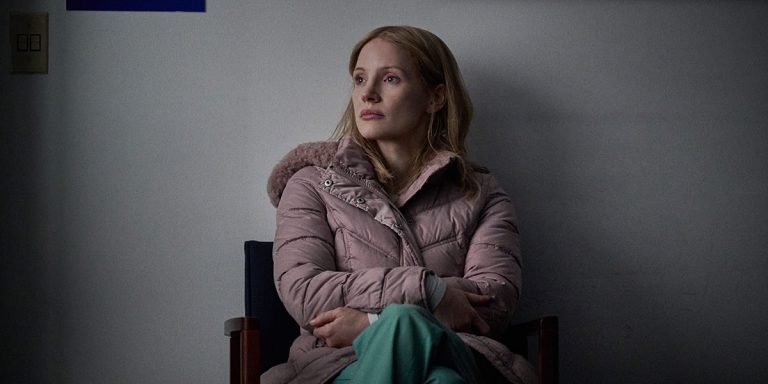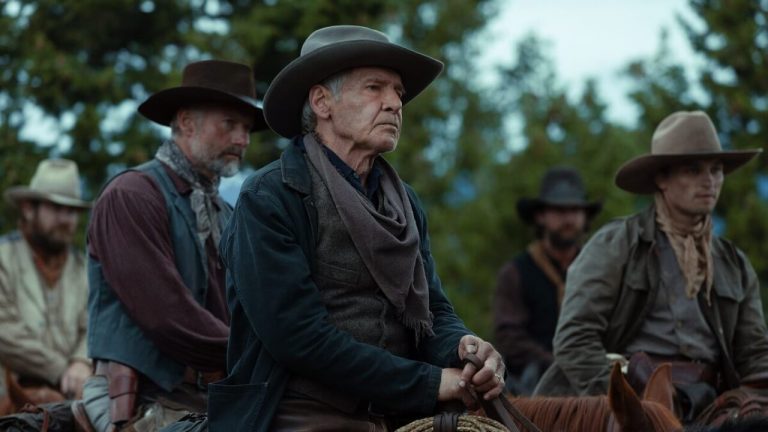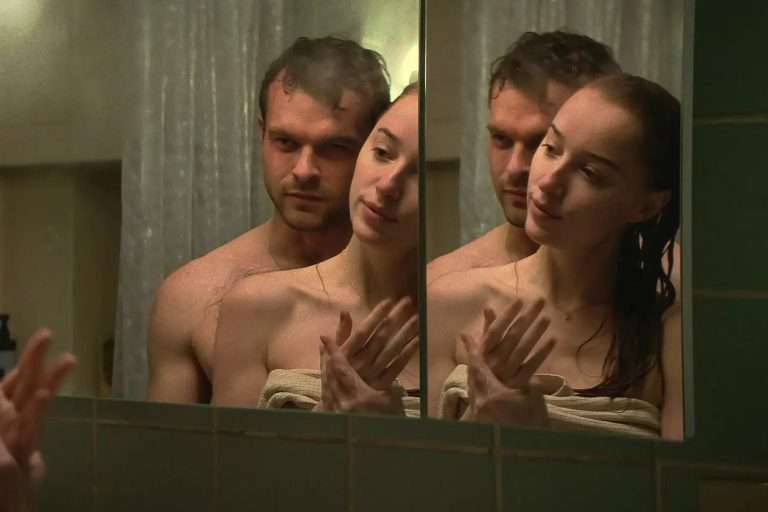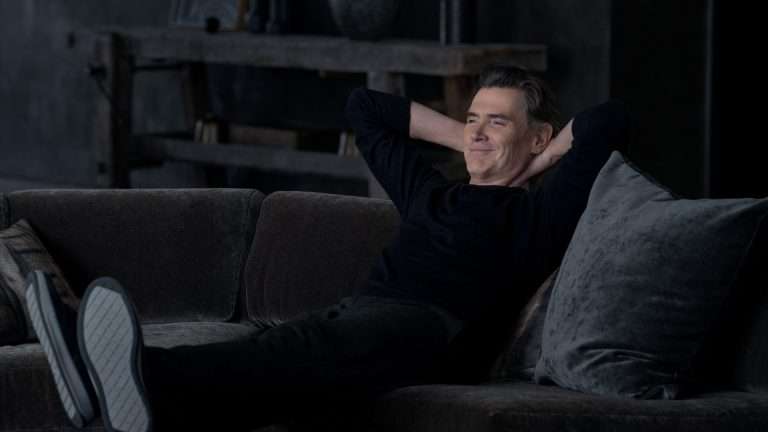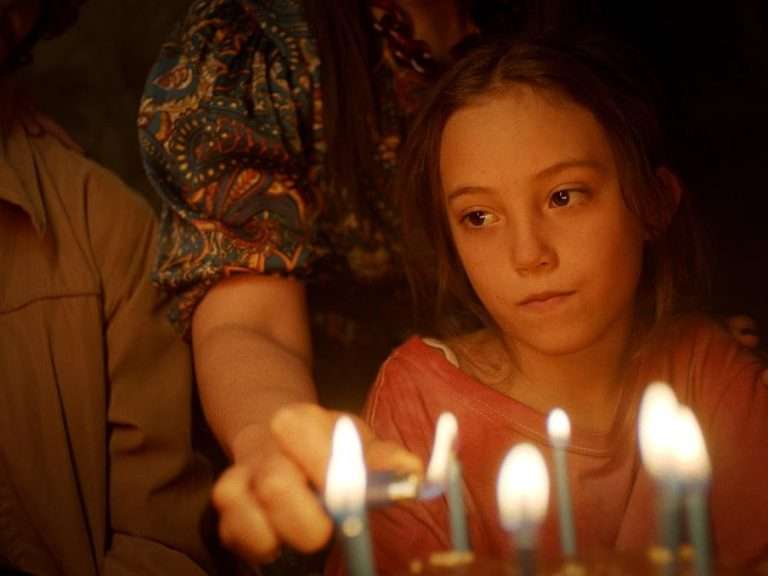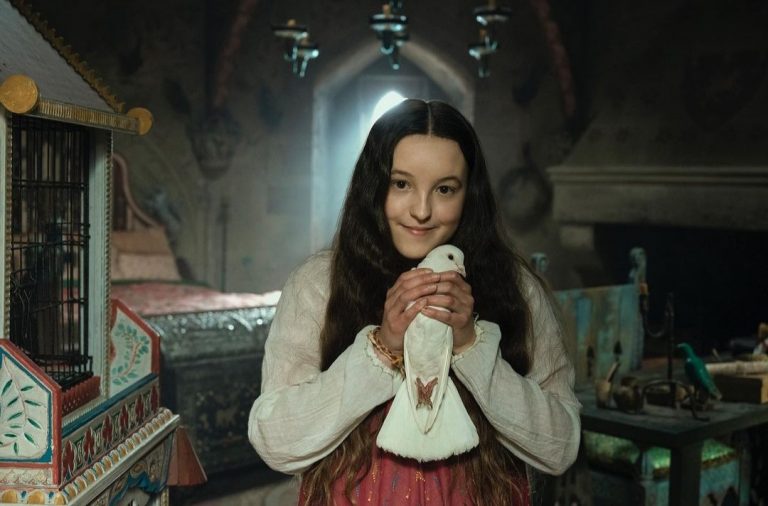The Old Man (Season 1) Episode 4 Recap & Ending Explained: Last week was about twists, but this week was about revelations. The episode peels the layers of each character and reveals about them through an hour-long story low on visceral action but high on intrigue and suspense. It is also the episode that might make or break people watching the show because, as Episode 4 shows, the story is not something anyone expected.
The Old Man (Season 1), Episode 4 “IV” Recap:
The opening scene continues from last week’s cliffhanger ending with Chase opening the boot of his car and looking at it. Now, as suspected, we see Zoe climbing out of the car with heavy reluctance and apparent reticence. No matter how Dan spins it, this has turned into a nightmare for Zoe, one she cannot control. She is restricted from calling her son for the last time on her phone for fear of being tracked (he doesn’t pick up, but we know in the next scene that the FBI had interrogated him, so Dan’s fears were valid). But unlike what Dan had instructed her about revealing the truth of the situation, she chose not to, instead of cutting the call after hearing the message beep. It’s a small step, but a step towards her getting control of the situation via baby steps.
It is becoming increasingly clear that the women in this story are shaping up to be far more compelling characters than the men, especially the titular older man. In the following scene, we see Harold talking with his men at the office, unable to find Chase since the escape attempt three days ago. We are also treated to the sight of Angela being very close with Harper’s grandson, Chip, whom she reveals later had been the subject of an altercation at school regarding his presentation. While the previous episodes had shown Angela as being a close protege of Harold’s, this episode almost muddies the water in exploring their relationship. On the one hand, it appears that Angela had been close to Harold’s son Chip, while on the other hand, she might have been in a relationship with Lily, Harold’s daughter-in-law. Angela exhibits a sense of familial love towards Harold, which Harold, too, doesn’t hesitate to reciprocate in his gravelly way. But “Angela” is a carefully constructed identity, one which is now being threatened as the specter of Faraz Hamzad brings itself to the forefront. For “Angela”, Harold has a special place because he threatened to walk out of his job at the FBI when she was fired for having punched a condescending coworker. This, she admits to Waters while drinking together at the bar, is the reason for her loyalty. But how much of it is true? As conversations with her father reveal, both after that night at Harold’s and later after that meeting with Hamzad’s lawyer, she is battling a two-pronged war of loyalty—loyalty towards her father, for whom it can be inferred she took the job as deep cover, and loyalty towards Harold Harper, who forces her to go with Harper to meet with Hamzad instead of taking the easy way out of hiding under an assumed name and being on the run, as her father instructs her.
The monkey wrench in her plans comes in the form of Hamzad, who, via his lawyer, instructs Harold and his associates, which include Angela and Agent Waters, to aid him in his quest. It isn’t clear what Hamzad’s quest is, though if we take Chase’s perspective, he could be after revenge because his wife left him for Dan. It is clear that Harold believes the same, as he arrogantly reminds Hamzad’s lawyer of the same, along with revealing Dan’s real name (Johnny Koehler) and his wife Abbey’s as well (Balour). While Harold takes into stride Hamzad’s strange request to meet him in person, which would involve Harold and Angela traveling via his private jet, Harold is best with the germ of suspicion towards his protege. Firstly, by noticing her interest in the woman who connects Dan and Hamzad together—Abby and Balour. The suspicion is further compounded when Julian (who is very much in the game and one of his coworkers also moonlights as an assassin) calls him up and remarks that the reason for his failure was that Dan Chase was already on the verge of moving out and going underground. Realizing that Harold is blindsided, he drops the almost inevitable bombshell that there is a mole in his organization. We know that Harold suspects Angela because visually, the scene immediately cuts to her, and later, before embarking on the plane, he has a conversation with Agent Waters where he remarks in not so uncertain terms that a man should brace for disappointment from his children.
Then we have the flashback sequences to Afghanistan, where we see Dan Chase (or Johnny Kohler) leading the fight against the invading Soviet army. In the darkness, we see him taking out soldiers stealthily, like a ghost dissolving against the shadows and managing to flush out the lives of these soldiers before they are afforded a chance to scream. It is horrifying, brutal, and yet highly efficient. We learn that their mission was to capture a commander named Suleyman Pavlovich. But as Johnny returns and watches in the distance Hamzad looming over the Russian prisoners like their executioner, we see the older version of Abbey (Hiam Abbas) warning him that this is the moment that signified Hamzad’s fall to the side of monsters, according to Johnny, and how they both (Johnny and Abbey) would become monsters as well to escape Hamzad’s influence. It is fascinating how the older version of Abbey becomes the connective tissue between the past and present, giving these flashback sequences more of an ethereal sense of urgency, the past and present beginning to blur as we see the past version of Dan interacting with this ghostly apparition of Abbey. It’s debatable whether it works beyond a stylistic choice, but it’s interesting as a narrative construct. But perhaps the ghostly nature of Abbey also extended to the real world, which is why Angela remembers her as a “hollow shell,” even as her affection for her mother hasn’t entirely waned. It would be interesting to explore whether Balour, escaping from Hamzad’s clutches, ever really enjoyed the happiness she had lost out on before and wanted to regain by escaping with Dan.
The Old Man (Season 1), Episode 4 Ending Explained:
Suleyman Pavlovich, in the present, is the target of Dan’s alter-ego, wealthy magnate Henry Dixon, who wants to get involved with Pavlovich’s mining and metallurgy company as soon as possible. Dan’s model of the eccentric billionaire is Dixon because he had never seen or had never contacted the CEO of his company via face-to-face meeting, preferring to conduct their business via phone. A perspective which “Marcia Dixon,” Zoe’s forced alter ego, soon learns when she is contacted by one of those associates to learn about whether she is comfortable. Currently living in a penthouse apartment in LA, owned by Henry Dixon, Zoe soon concocts a plan, which she manages to spring on an unsuspecting Dan after lulling him to a false sense of security by organizing a sumptuous dinner with wine. Zoe reveals that she had written a letter to the board of directors of Dan’s company informing them of her decision to divorce him. This, she deduced correctly, would send the board into a tizzy as questions would arise with regards to the division of assets, which would completely derail whatever plans Dan currently has. She thus gifts Dan with two options—either he gives up half of his company, or he presents her with a reasonable amount of exit money so that she can walk out on him. As Dan, in a rage, almost tries to choke her, she looks on unafraid. Amy Brenneman paints Zoe as a woman so inadvertently damaged by a prior divorce that she refuses to let a man take control of her volition and thus blackmails Dan into “accounting” for her.
The Old Man (Season 1), Episode 4 Review:
This episode of The Old Man shows a form of a seismic shift, as the show completely leans into the espionage aspect of the spy genre. And like the best stories of the genre, The Old Man focuses on organizations and factions crossing and double-crossing each other, intent on continuing a version of the shadow war that was supposed to have died out by the end of the cold war. And now it is only being led by older men with revenge disguised as rational justifications, with legacy being used as a pawn in this enormous but ultimately useless chess game. For my part, I appreciated this genre shift, making me curious to see this tapestry of lies. However, a few filmmaking decisions have left me perplexed yet hopeful for the show’s impending payoff.





